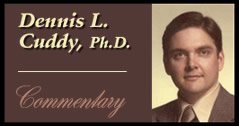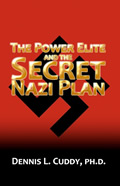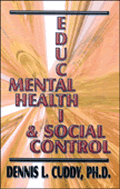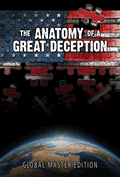COMMON CORE
PART 3
By
Dennis L. Cuddy, Ph.D.
March 30, 2015
NewsWithViews.com
Following the theme of the Illuminati and Common Core proponents that "they know what is best for the rest of us," Arthur Calhoun in `1919 authored the third volume in his series, A SOCIAL HISTORY OF THE AMERICAN FAMILY, which became a widely used social service textbook. In it, he noted that "the child passes more and more into the custody of community experts," and he also elaborated that "the new view is that the higher and more obligatory relation is to society rather than to the family; the family goes back to the age of savagery while the state belongs to the age of civilization. The modern individual is a world citizen (a view of the Illuminati), served by the world, and home interests can no longer be supreme....As soon as the new family, consisting of only the parents and the children, stood forth, society saw how many were unfit for parenthood and began to realize the need for community care....As familism weakens, society has to assume a larger parenthood.
The school begins to assume responsibility for the functions thrust upon it....The kindergarten grows downward toward the cradle and there arises talk of neighborhood nurseries....It seems clear that at least in its early stages, socialism will mean an increased amount of social control....We may expect in the socialist commonwealth a system of public educational agencies that will begin with the nursery and follow the individual through life....Those persons that experience alarm at the thought of intrinsic changes in family institutions should remember that in the light of social evolution, nothing is right or valuable in itself." Remember the above references to "cradle" and "follow the individual through life" when reading a later part of this series describing a letter written by National Center on Education and the Economy president Marc Tucker on November 11, 1992 to Hillary Clinton about Bill Clinton's presidential victory giving them a chance to implement their "cradle to grave" plan for everyone.
In the 1920s, "Father of Progressive Education" (and later National Education Association honorary president) John Dewey went to the Soviet Union and authored an article in the December 5, 1928 edition of THE NEW REPUBLIC, in which he described "the marvelous development of progressive educational ideas and practices under the fostering care of the Bolshevist government...the required collective and cooperative mentality....The great task of the school is to counteract and transform those domestic and neighborhood tendencies...the influence of home and Church....In order to accomplish this end, the teachers must in the first place know with great detail and accuracy just what the conditions are to which pupils are subject in the home (remember this when reading about Common Core's collection of large amounts of personal data)....One of the most interesting pedagogical innovations...to discover the actual conditions that influence pupils in their out-of-school life...(is using) the themes of written work, the compositions of pupils, and also a detailed study throughout the year of home and family budgets....The institution of the family is being sapped indirectly rather than by frontal attack....There is no word one hears oftener than Gruppe, and all sorts of groups are instituted that militate against the primary social importance of the family unit.
In consequence, to anyone who looks at the matter cold-bloodedly, free from sentimental associations clustering about the historic family institution, a most interesting sociological experimentation is taking place....Our special concern here is with the role of the schools in building up forces and factors whose natural effect is to undermine the importance and uniqueness of family life....The earliest section of the school system, dealing with children from three to seven, aims to keep children under its charge six, eight, and ten hours a day, and in ultimate ideal this procedure is to be universal and compulsory....Reference to this phase of Soviet education may perhaps be suitably concluded by a quotation from Lenin: 'We must declare openly what is concealed, namely, the political function of the school....It is to construct communist society.'"
The next year (1929), Edward Thorndike (trained by Wundtians in the United States) and Arthur Gates authored ELEMENTARY PRINCIPLES OF EDUCATION, in which one reads: "Traditionally the elementary school has been primarily devoted to teaching the fundamental subjects, the three R's, and closely related disciplines....Artificial exercises, like drills on phonetics, multiplication tables, and formal writing movements, are used to a wasteful degree. Subjects such as arithmetic, language, and history include content that is intrinsically of little value...."
(In an upcoming part of this series, NEA president Catherine Barrett will make a similar comment in 1973.) Pursuing these "progressive education" attitudes, Thorndike will produce new spellers, math texts, dictionaries, and textbooks on education and educational testing.
|
|
A year later (1930), the "Dick and Jane" basal reading series begins, using the "look-say" or "whole word" method of reading instruction Up until this time, there was a high rate of literacy among the people of the United States, but the consequences of "progressive educators" using the "look-say" approach (instead of the highly successful intensive phonics method) will prove disastrous, causing a growing problem of illiteracy.
� 2015 Dennis Cuddy - All Rights Reserved














 Share
This Article
Share
This Article






